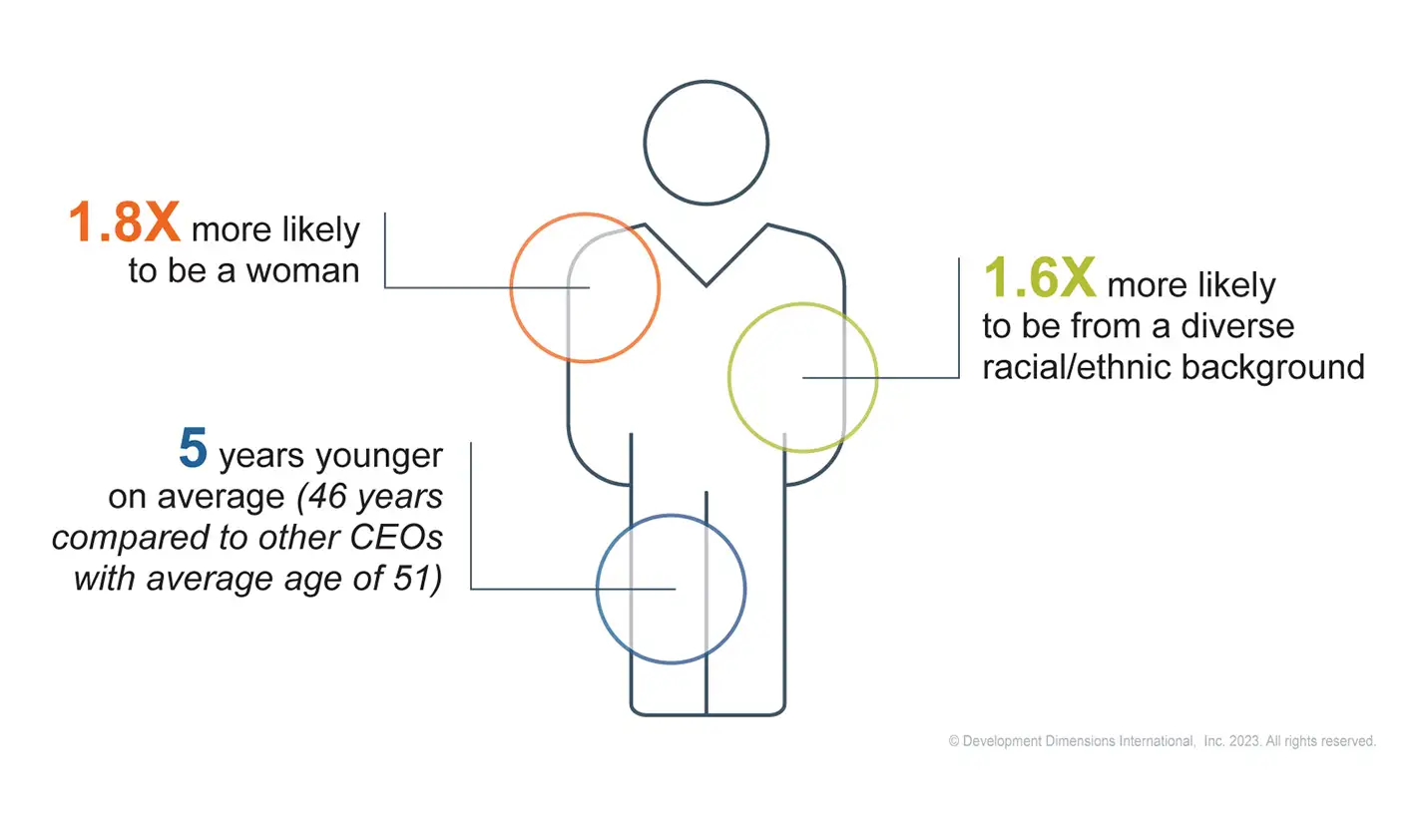BY THE NUMBERS
Profile of an Unexpected CEO

Companies with Strong Candidate Pools Can Move Quickly to Change Their CEO
In many organizations, the promotion to CEO goes to the “heir apparent,” often a COO or CFO who has been preparing for the role for years. However, our data shows that in about 20% of cases, the rising CEO was surprised by their promotion to the top role. These cases likely reflect situations in which the next CEO was chosen quickly, without giving the successor a long on-ramp ahead of time.
Often, the need to rapidly choose a new CEO who was not expecting the promotion sets off alarm bells. However, we saw evidence that organizations that acted quickly also prepared with sophisticated approaches to succession.
Organizations in which the CEO did not expect their promotion were 1.6X more likely to have vetted and developed successors as part of a high-potential pool. They were also 2.8X more likely to use assessment to gather data about leader readiness and forecast future talent needs against “what if” scenarios and contingency plans.
This approach to developing a pool of potential successors also resulted in greater diversity. CEOs who didn’t expect the role were 1.8X more likely to be women,1.6X more likely to be from a diverse racial/ethnic background, and were an average of five years younger than leaders who expected their promotion.
Despite rising quickly, unexpected CEOs tended to be modest. Compared to their peers, these CEOs rated themselves lower in extroversion and ambition.
Only 53% of CEOs with unexpected promotions said they wanted to be a leader before they were asked, in comparison to a much higher 82% of leaders who expected their promotion to CEO.
The question is: are unexpected CEOs set up to fail? While our data can’t definitively rate their success or failure, we found evidence that unexpected CEOs put more focus on building strong relationships and leading with empathy. Leaders in their organizations were 1.4X more likely to rate their senior leaders as high quality and 1.6X more likely to say they trust senior leadership.
Companies that have done a good job preparing a strong pool of diverse potential candidates have better visibility into who may be ready for the role. These organizations may also be doing a better job of finding executives who excel by surrounding themselves with other great leaders, rather than expecting to do it all themselves.
